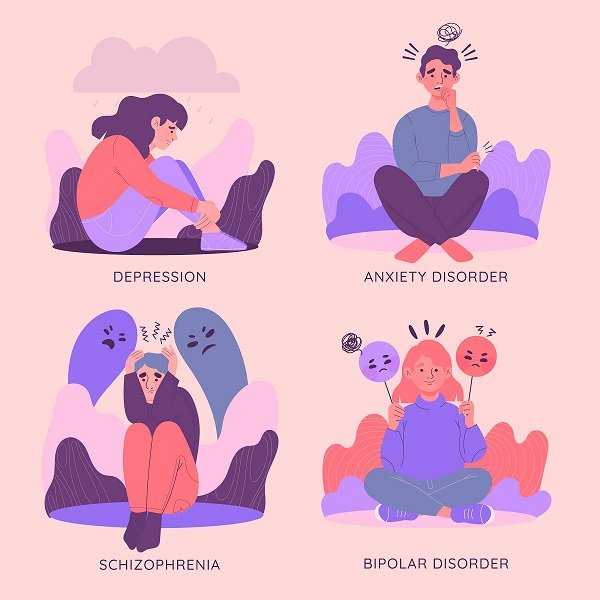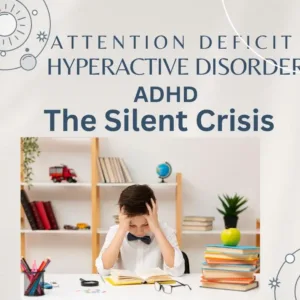Balancing Blooms and Blues: Mental Health During Pregnancy and Postpartum
Mental health during pregnancy and postpartum is a critical aspect of maternal well-being that deserves attention and support. Motherhood is a journey filled with wonder, exhaustion, and a kaleidoscope of emotions. While the arrival of a new life brings immense joy, it’s also a time of tremendous change and adjustment. This can lead to unexpected emotional challenges for many women. Today, let’s explore the often-unheard side of motherhood: mental health during pregnancy and postpartum. By acknowledging these experiences and offering support, we can create a space for mothers to thrive, not just survive, during this transformative time.
Types of Mental Health Concerns:
- Perinatal Depression: Perinatal depression encompasses both prenatal depression (during pregnancy) and postpartum depression (after childbirth). It is characterized by persistent feelings of sadness, hopelessness, and worthlessness, along with changes in sleep, appetite, and energy levels.
- Perinatal Anxiety: Anxiety disorders can also manifest during pregnancy and postpartum, leading to excessive worry, fear, and nervousness. Women may experience panic attacks, obsessive-compulsive behaviors, or generalized anxiety that interferes with daily functioning.
- Baby Blues: Feeling overwhelmed, tearful, or anxious in the first few days after birth is quite normal. These “baby blues” usually don’t last long and don’t require treatment.
- Postpartum OCD (Obsessive-Compulsive Disorder): Intrusive thoughts and compulsive behaviors related to the baby’s safety or well-being can emerge.
- Postpartum Psychosis: A rare but severe condition involving hallucinations, delusions, and disorganized thinking. It requires immediate medical attention.

Symptoms:
- Persistent sadness or mood swings
- Anxiety, worry, or panic attacks
- Difficulty bonding with the baby
- Changes in appetite or sleep patterns
- Loss of interest in activities previously enjoyed
- Feelings of guilt, shame, or inadequacy
- Irritability, anger, or agitation
- Thoughts of self-harm or harming the baby
Diagnosis :
- Screening Tools: Healthcare providers often use standardized screening tools to assess a woman’s mental health status during pregnancy and postpartum. The most commonly used screening tool is the Edinburgh Postnatal Depression Scale (EPDS), which consists of a series of questions designed to identify symptoms of depression and anxiety. Women may be asked to complete the EPDS during routine prenatal visits and after giving birth.
- Clinical Evaluation: In addition to screening tools, healthcare providers conduct a thorough clinical evaluation to gather information about the woman’s medical history, mental health history, current symptoms, and any risk factors for mental health issues. This evaluation may involve asking questions about mood, sleep patterns, appetite, energy levels, and thoughts of self-harm or harming the baby.
- Physical Examination: A physical examination may be performed to rule out any underlying medical conditions that could contribute to or mimic symptoms of mental health issues. This may include assessing thyroid function, hormone levels, and other relevant factors.
- Psychological Assessment: In some cases, a psychological assessment may be conducted by a mental health professional, such as a psychiatrist or psychologist. This assessment may involve more in-depth questioning and psychological testing to better understand the nature and severity of the woman’s symptoms.
- Collaborative Approach: Diagnosing mental health issues during pregnancy and postpartum often involves a collaborative approach among healthcare providers, including obstetricians, primary care physicians, midwives, psychiatrists, psychologists, and social workers. Communication and coordination among these professionals are essential for ensuring comprehensive care and appropriate treatment.
- Diagnostic Criteria: Mental health conditions during pregnancy and postpartum are diagnosed based on established diagnostic criteria outlined in the Diagnostic and Statistical Manual of Mental Disorders (DSM-5). These criteria specify the duration, frequency, and severity of symptoms required for a diagnosis of conditions such as depression, anxiety disorders, and other mood disorders.
- Ongoing Monitoring: Mental health assessment is an ongoing process throughout pregnancy and the postpartum period. Healthcare providers continue to monitor women’s mental health status during routine prenatal visits, postpartum check-ups, and other healthcare encounters. Regular follow-up allows for timely intervention and adjustments to treatment plans as needed.
- Cultural Sensitivity: It’s important for healthcare providers to approach mental health assessment with cultural sensitivity and awareness of the unique cultural beliefs, values, and practices that may influence women’s experiences of pregnancy and postpartum mental health. Building trust and rapport with patients and creating a supportive, nonjudgmental environment are key components of effective assessment and care.
How To Improve Mental Health During Pregnancy and Postpartum :
- Seeking Support: It’s essential for women experiencing mental health concerns to reach out for support from loved ones, healthcare providers, or mental health professionals. Talking openly about feelings and seeking guidance can alleviate some of the burden.
- Therapy: Counseling or therapy, such as cognitive-behavioral therapy (CBT), can be effective in addressing perinatal depression and anxiety. Therapy provides a safe space to explore emotions, develop coping strategies, and learn healthy ways to manage stress.
- Medication: In some cases, medication may be prescribed to manage symptoms of depression or anxiety during pregnancy and postpartum. Healthcare providers carefully weigh the benefits and risks of medication and monitor closely for any potential side effects.
- Self-Care: Practicing self-care techniques such as mindfulness, relaxation exercises, and adequate rest can support mental well-being during pregnancy and postpartum. Engaging in activities that bring joy and fulfillment can help maintain a sense of balance amidst the challenges of motherhood.
- Healthy Lifestyle: Eating a balanced diet, staying physically active (with approval from a healthcare provider), and prioritizing regular sleep can contribute to overall mental and physical health during pregnancy and postpartum.
Conclusion:
Remember, mama, you are not alone in this. The strength it takes to nurture a tiny human is immense, and reaching out for support is a sign of courage, not weakness. By prioritizing your mental well-being, you create a foundation for a happier, healthier you and a stronger bond with your precious bundle of joy. Let’s celebrate motherhood in all its complexity, and embrace the journey together.
Frequently Asked Questions (FAQs):
What is maternal mental health?
It refers to a woman's emotional well-being during pregnancy and the postpartum period. It's crucial because mental health impacts not only the mother but also her baby and family dynamics.
What are common mental health concerns experienced during pregnancy and postpartum?
Its include perinatal depression, anxiety disorders, postpartum psychosis, and adjustment disorders. These conditions can range from mild to severe and may require professional intervention.
What are the risk factors for developing maternal mental health issues?
Risk factors include a history of mental health disorders, previous traumatic experiences, lack of social support, financial stress, pregnancy complications, and hormonal changes. However, anyone can experience maternal mental health issues, regardless of risk factors.
What mental disorder has mood swings?
Normal mood swings are common during pregnancy and postpartum due to hormonal changes and stress. However, if mood changes persist, interfere with daily functioning, or include symptoms such as excessive worry, sadness, or irritability, it may indicate a mental health concern.
Can maternal mental health issues affect the baby?
Yes, untreated maternal mental health issues can impact the baby's development and may lead to complications such as preterm birth, low birth weight, and developmental delays. Additionally, a mother's mental health can influence her ability to bond with and care for her baby.
How can I support a loved one who is experiencing maternal mental health issues?
Offer nonjudgmental support and encouragement, listen actively, help with household tasks, provide opportunities for self-care, and accompany them to healthcare appointments. Encourage them to seek professional help if needed and reassure them that they're not alone.
What treatment options are available for maternal mental health issues?
Treatment options may include therapy (such as cognitive-behavioral therapy or interpersonal therapy), medication (if recommended by a healthcare provider), support groups, self-care practices, and lifestyle modifications. The most effective treatment approach depends on the individual's specific needs and preferences.
Is it safe to take medication for mental health issues during pregnancy and breastfeeding?
It's essential to consult with a healthcare provider to weigh the benefits and risks of medication during pregnancy and breastfeeding. Some medications are considered safe and may be necessary for maternal and fetal well-being, while others may pose risks.
Can you recover from mental health problems?
It is possible to recover from mental health problems, and many people do – especially after accessing support. Your symptoms may return from time to time, but when you've discovered which self-care techniques and treatments work best for you, you're more likely to feel confident in managing them.
Where can I find additional resources and support for maternal mental health?
Resources include mental health professionals, obstetricians/gynecologists, midwives, support groups, online forums, and organizations specializing in perinatal mental health. Don't hesitate to reach out for help and support—it's a sign of strength, not weakness.



